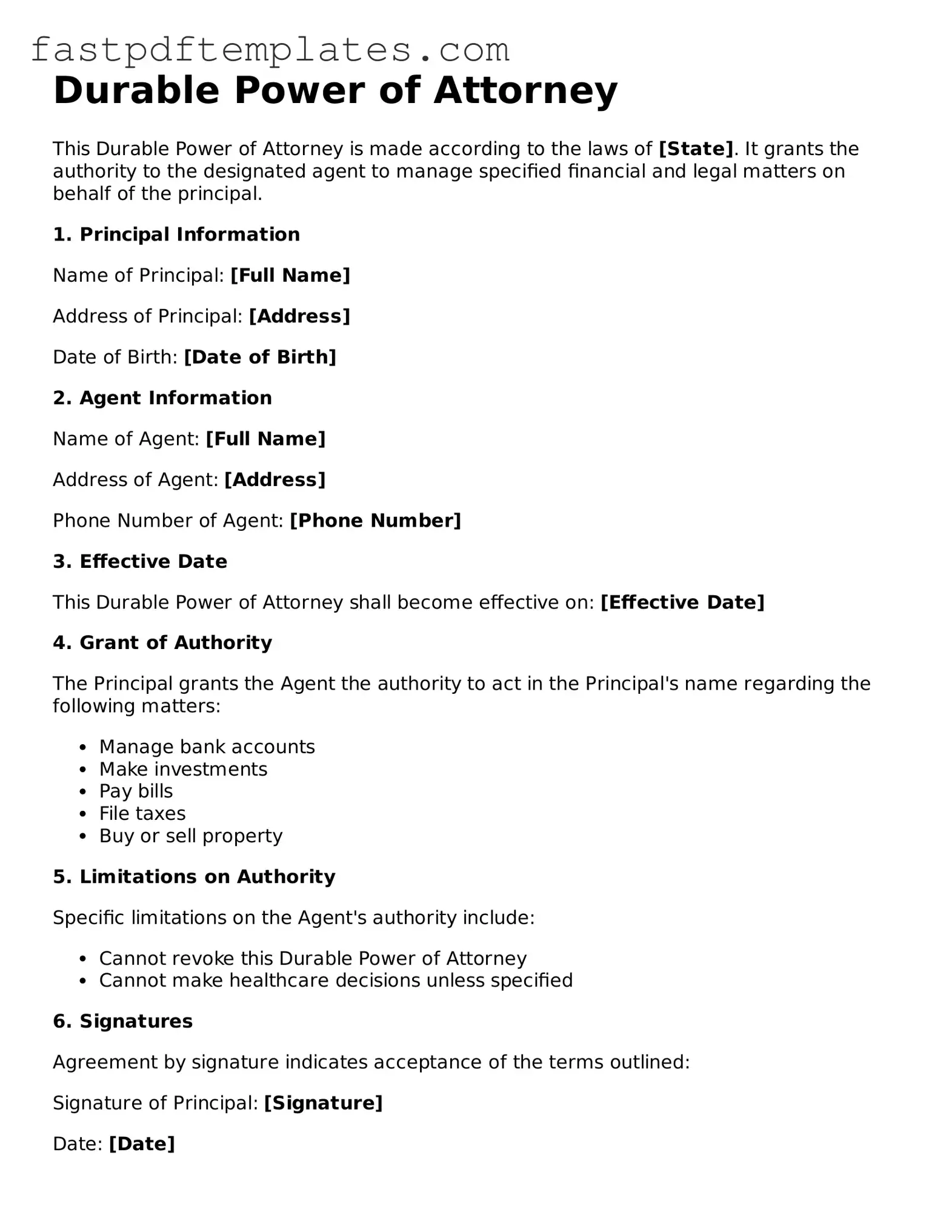Fillable Durable Power of Attorney Document
A Durable Power of Attorney is a legal document that allows an individual to appoint someone else to make decisions on their behalf, especially when they become unable to do so themselves. This form remains effective even if the person who created it becomes incapacitated, ensuring that their financial and medical matters are managed according to their wishes. Understanding this important tool can provide peace of mind and clarity in times of uncertainty.
Access Document

Fillable Durable Power of Attorney Document
Access Document
Your form still needs completion
Complete your Durable Power of Attorney online and download the final PDF.
Access Document
or
Click for PDF Form
